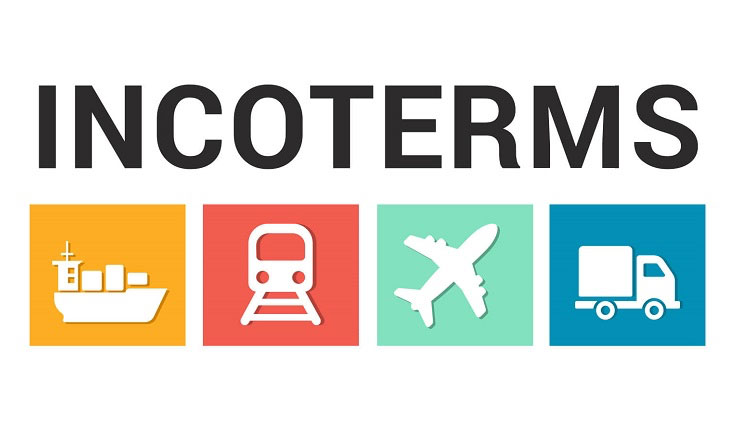Incoterms, or International Commercial Terms, are a set of predefined commercial terms published by the International Chamber of Commerce (ICC) that are widely used in international commercial transactions or procurement processes. They are primarily used to clearly communicate the tasks, costs, and risks associated with the transportation and delivery of goods.
Different Incoterms are better suited for different modes of transport. For instance:
Group E Incoterms
EXW (Ex Works) –Named place of delivery. The seller has minimum responsibility, makes the goods available at his factory premises or named place of delivery . The buyer takes on all transportation risks, operation costs, insurance and custom clearence charges.

Group F Incoterms
Group F Incoterms are terms where the seller is responsible for delivering the goods to a carrier appointed by the buyer without paying for the main carriage. There are three terms under Group F:
FCA (Free Carrier): Named place.
The seller delivers the goods, cleared for export, to the carrier chosen by the buyer at the seller’s premises or another named place.
FAS (Free Alongside Ship): Named port
The seller must place the goods alongside the ship at the named port of departure.
FOB (Free On Board): Named port of shipment
The seller must load the goods on board the ship nominated by the buyer.
- These terms are typically used when the buyer wants to control the main carriage and costs.

Group C Incoterms
CPT (Carriage Paid To)– Named place of destination. means the seller pays for carriage to the named place, but risk transfers to the buyer once the goods are handed over to the first carrier.
CIF (Cost, Insurance, and Freight) : Named Port of destination is typically used for maritime transport where the seller covers costs, insurance, and freight to bring goods to the port of destination.
CIP (Carriage and Insurance Paid to): Named place of destination
The seller pays for the carriage and insurance to the named destination point, but risk transfers to the buyer once the goods are handed over to the carrier.
CFR (Cost and Freight): Named port of destination.
The seller must pay the costs and freight necessary to bring the goods to the named port of destination Including the port and terminal charges. The insurance is covered by the exporter only till the port of loading but the freight and unloading charges are up to the port of destination

Group D Incoterms
- DAP (Delivered at Place): The seller delivers when the goods are placed at the disposal of the buyer on the arriving means of transport ready for unloading at the named place of destination.
- DAT (Delivered at Terminal): The seller delivers when the goods, once unloaded from the arriving means of transport, are placed at the disposal of the buyer at a named terminal at the named port or place of destination.
- DPU (Delivered at Place Unloaded): This term means that the seller delivers and unloads the goods at disposal of the buyer at a named place (either a terminal or transport hub, or another location) in the destination country. The seller bears all risks involved in bringing the goods to and unloading them at the destination place.
- DDP (Delivered Duty Paid): The seller delivers the goods to a named place in the destination country, cleared for import, and bears all costs and risks involved in bringing the goods to the place of destination including duties, taxes and other charges.

learn more about international trade invoice types.

